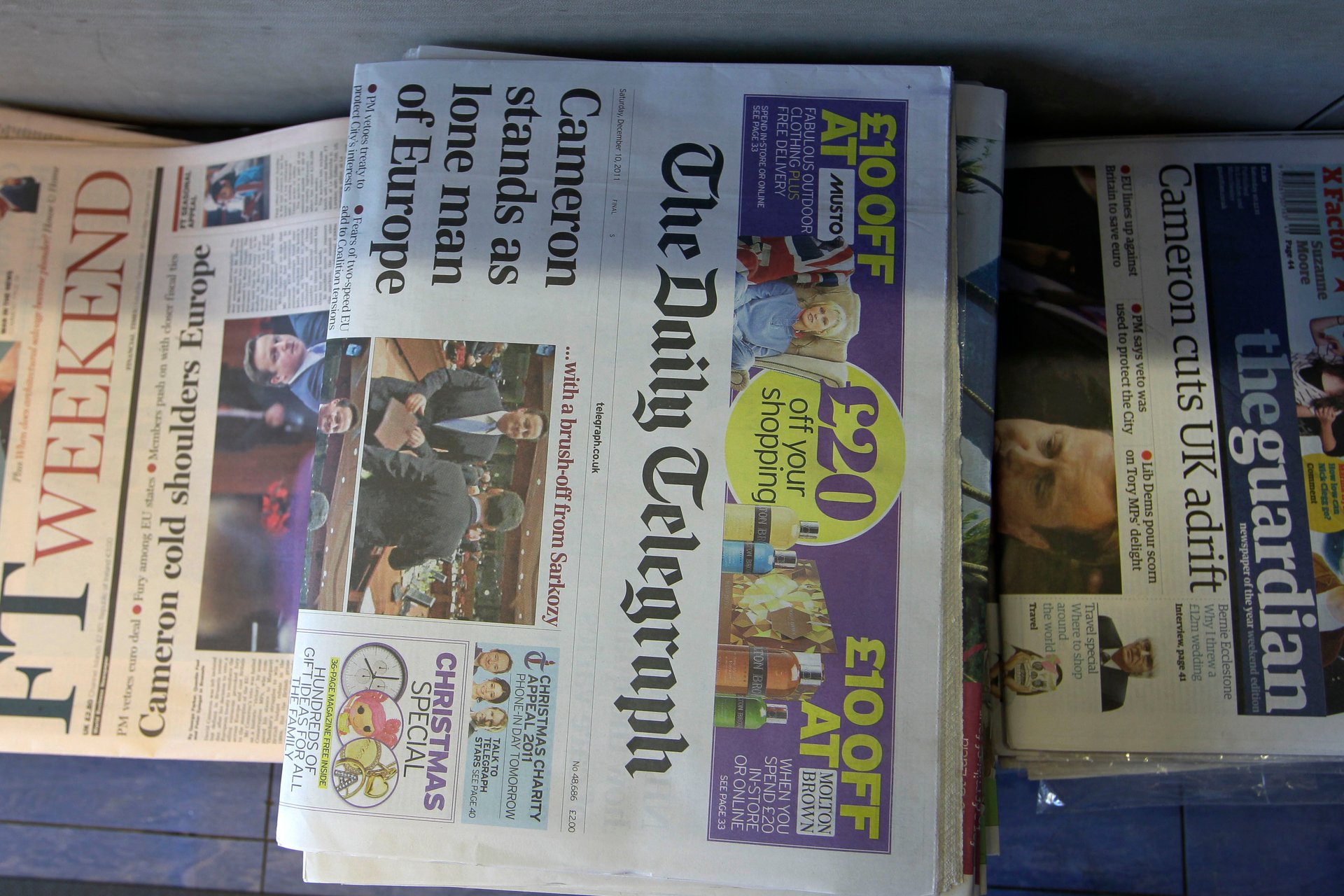UK government says it will back legislation to ban foreign state ownership of British newspapers
The U.K. government says it will back legislation banning foreign state ownership of British newspapers and magazines, a move that could upend a planned takeover by a United Arab Emirates consortium of the Telegraph Media Group

LONDON (AP) — The U.K. government said Wednesday it will back legislation banning foreign state ownership of British newspapers and magazines, a move that could upend a planned takeover by a United Arab Emirates-led consortium of the Telegraph Media Group.
Suggested Reading
The development comes after numerous lawmakers from across the political divide urged an explicit ban, rather than using a regulatory approach to ensure that publications don't parrot views of state actors.
Related Content
The minister in charge of media, Stephen Parkinson, said the government will introduce an amendment to the “Digital Markets, Competition and Consumers Bill” currently making its way through Parliament.
The bill, which is expected to pass easily, will prevent the takeover of British publications by foreign governments. However, foreign individuals and firms will continue to be able to own papers and magazines.
“Freedom of the press is fundamental to a functioning democracy," said Parkinson. “What freedom of the press means is freedom from government.”
The legislation stems from concern about the proposed takeover of the right-leaning and publications by RedBird IMI, which is backed by U.S. financial firm RedBird Capital Partners and Sheikh Mansour bin Zayed Al Nahyan, a member of Abu Dhabi’s royal family, who is also the UAE’s vice president.
Sheikh Mansour has been a prominent figure in Britain since his 2008 takeover of soccer club Manchester City. His wealth has transformed the fortunes of City, taking the club from an also-ran in the English Premier League to a dominant force.
The proposed takeover of the Telegraph Media Group — The Daily Telegraph, The Sunday Telegraph as well as The Spectator magazine — has also been subject to a separate investigation, ordered by the Culture Secretary Lucy Frazer, due to its possible impact on press freedom. The Telegraph papers are closely allied to the governing Conservative Party.
The takeover has been opposed by Spectator's editor Fraser Nelson, who welcomed the government's decision to introduce the ban.
“If governments start to own newspapers, whether they're British governments, European governments or an Arab government, you end up with press freedom compromised fatally,” he told Sky News.
“In journalism, one of the maxims is follow the money and if that money leads to the Abu Dhabi government, then you've got a pretty big problem when it comes to press freedom,” Nelson added.
In a statement, RedBird IMI, which has made six investments in the U.S. and the U.K., said the company was “extremely disappointed" by the government's decision as it believed the U.K.’s media industry was worthy of more investment.
“As with each of our deals, we have been clear that the acquisition of The Telegraph and The Spectator has been a fully commercial undertaking," it said. "We will now evaluate our next steps, with commercial interests continuing to be the sole priority.”